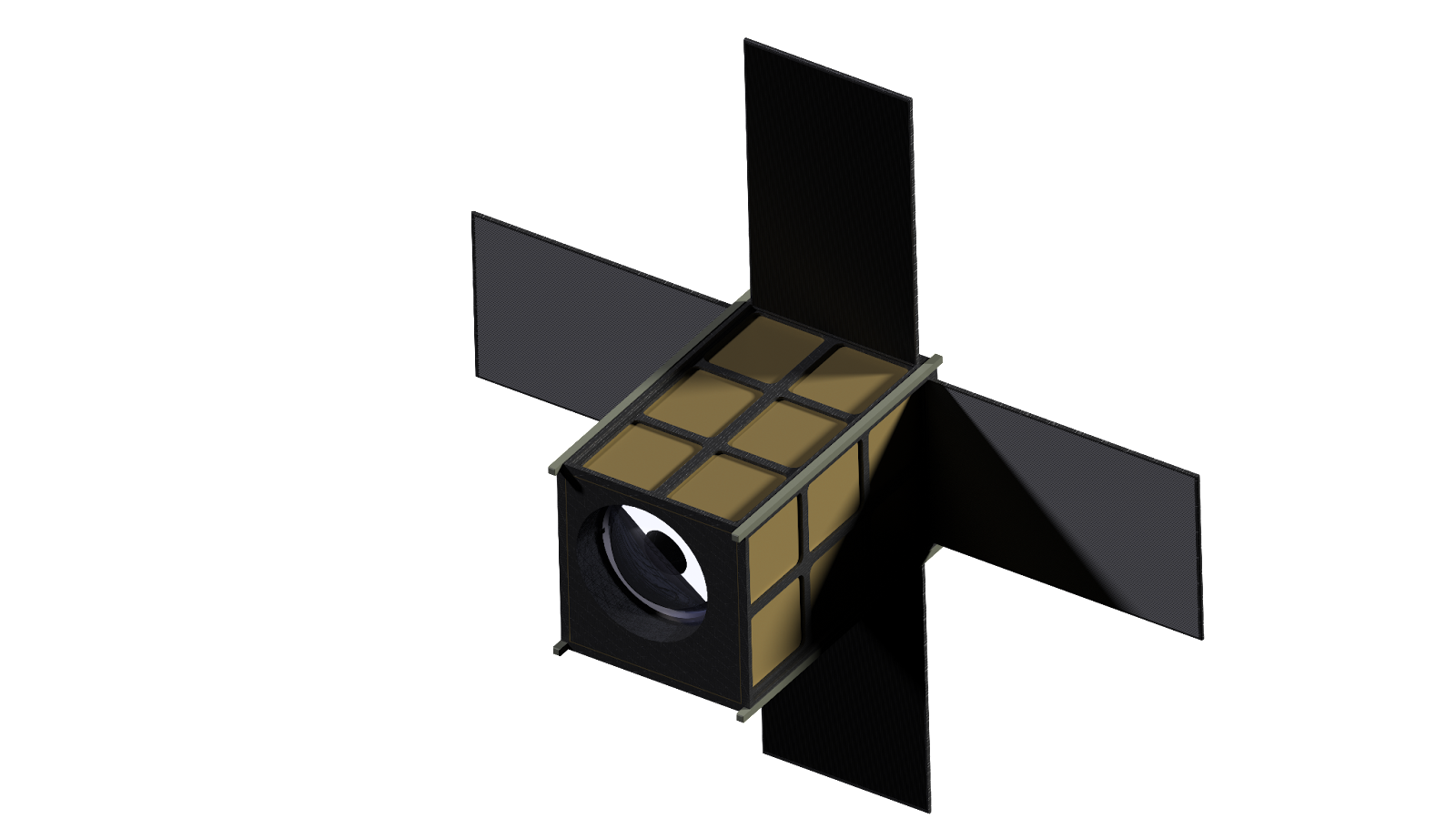U.S. Space Force Awards Contract to Orbital Composites for Advanced Radiation-Shielded Imaging Cubesats
The Award will accelerate development of lower-cost satellites for Geostationary and Cislunar applications
Campbell, CA. – August 31, 2023 – Orbital Composites today announced that it has been awarded a Direct-to-Phase-II SBIR contract from the United States Space Force (USSF). The award mandates the development of advanced Radiation-Shielded Imaging Cubesats tailored for Geostationary and CisLunar applications.
The project underscores the increasing significance of cutting-edge satellite technology for defense, space exploration, and communication applications. Recognizing the challenges posed by space radiation to electronic components, particularly in the geostationary and cislunar environments, the USSF's choice to invest in Orbital Composites' solution underlines the company’s reputation for pioneering breakthroughs in space technologies.
Orbital’s “beyond LEO” radiation-shielded cubesats will allow rapid development of Beyond-LEO satellites. By shielding commercial off-the-shelf electronics rather than using expensive radiation-hardened components, Orbital aims to manufacture cubesat platforms that can operate in GEO for a fraction of the cost of today’s exquisite, expensive platforms.
Orbital Composites is collaborating with NASA and Cosmic Shielding on novel radiation shielding techniques to protect the cubesat chassis, and working with Relative Dynamics to co-develop an optical payload.
"We are honored that the Space Force sees the value in our advanced manufacturing and radiation shielding technologies, which will dramatically push the boundaries of what’s possible for beyond-LEO satellites,” said Amolak Badesha, CEO and cofounder of Orbital Composites. "Within a few years, we envision fleets of Orbital Composites-built cubesats in GEO and Cislunar, providing unrivaled coverage for critical defense, scientific, and commercial applications," said Badesha.
Orbital's proprietary Additive Manufacturing Compression Molding (AMCM) manufacturing process will enable high-volume manufacturing of complex shielding structures, tailored to the radiation environment and spacecraft payload.
By the end of 2024, Orbital aims to demonstrate a complete shielded cubesat platform that is capable of operating in LEO and GEO environments. The final product will incorporate radiation shields printed from exotic polymers, together with Orbital's AMCM-printed satellite chassis and off-the-shelf commercial electronics.
“While there is a lot of interest in LEO constellations, let’s not forget the importance and advantages of GEO,” said Cole Nielsen, Founder and CTO of Orbital Composites. “Beyond-LEO satellite constellations provide numerous advantages, especially if they could be manufactured and deployed at an order of magnitude lower cost.”
This SBIR award is the latest validation of Orbital Composites’ vision to merge new materials and manufacturing techniques, and deliver order-of-magnitude improvements in cost, performance, and cycle times for complex aerospace systems.
Orbital Composites recently announced that it has secured a total of three SBIR contracts, including the radiation shielding award detailed in today’s announcement. This trio of awards follows a $1.7 million direct-to-phase II SBIR, from the USSF and SpaceWERX, that Orbital was awarded last month with Axiom Space, Northrop Grumman, and Southwest Research Institute. Together, these four SBIR contracts are worth nearly $5 million.
About Orbital Composites:
Orbital Composites is an advanced aerospace engineering company based in Campbell, CA. The company specializes in applying novel materials and 3D printing techniques to produce complex, high-performance systems at dramatically lower cost and lead time for space, defense, and commercial applications. Orbital Composites is a leader in areas like digital manufacturing, in-space servicing, advanced thermal management, and communications systems. For more information, visit orbitalcomposites.com.


